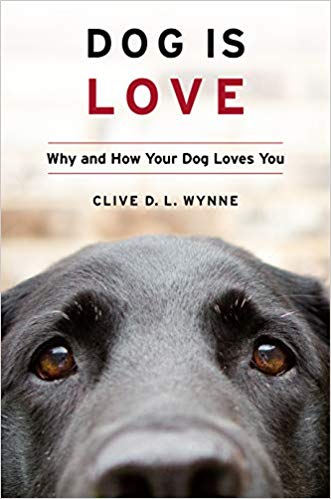Podcast: Play in new window | Download
Subscribe: RSS
The history of the animal rights and welfare movements
Lori begins with something any animal advocate ought to know about: the history of the animal rights and welfare movements. From the practices of ancient spiritual teachers of India, to the ideas of modern philosophers, Lori hopes this condensed history will inspire you to continue learning on your own.
What does Rabies do?
Then, in recognition of World Rabies Day, Dr. Robert Reed joins Lori to explain rabies, the nature of the virus and the disease it causes, and the current risks to people, dogs and cats in the US. Fortunately, thanks to the widespread use of vaccines, rabies cases are rare.
Note: Rabies is a viral infection that affects the nervous system of mammals. It invariably causes swelling of the brain and death after a relatively short illness.
The book, Dog is Love, by Clive Wynne
 Peter then welcomes Clive Wynne to speak about his new book, Dog is Love – Why and How Your Dog Loves You. Wynne’s offering is part memoir and part scientific detective story, proving the roots of our enduring bond with this cherished species. Highly recommended!
Peter then welcomes Clive Wynne to speak about his new book, Dog is Love – Why and How Your Dog Loves You. Wynne’s offering is part memoir and part scientific detective story, proving the roots of our enduring bond with this cherished species. Highly recommended!
Does your dog love you?
Every dog lover knows the feeling. The nuzzle of a dog’s nose, the warmth of them lying at our feet, even their whining when they want to get up on the bed. It really seems like our dogs love us, too. But for years, scientists have resisted that conclusion, warning against anthropomorphizing our pets. Enter Clive Wynne, a pioneering canine behaviorist whose research is helping to usher in a new era: one in which love, not intelligence or submissiveness, is at the heart of the human-canine relationship. Drawing on cutting‑edge studies from his lab and others around the world, Wynne shows that affection is the very essence of dogs, from their faces and tails to their brains, hormones, even DNA. This scientific revolution is revealing more about dogs’ unique origins, behavior, needs, and hidden depths than we ever imagined possible.
Musings about crazy cat ladies
Lori concludes the show examining the idea of the “crazy cat lady.” A recent study examined the stereotype, but listen in to hear what Peter and Lori think about this personality profile.




Interesting first segment. You quote Rene Descartes as saying “…animals could not reason and were INCAPABLE OF FEELING PAIN” !! So my question is….was his being deaf and blind widely known?